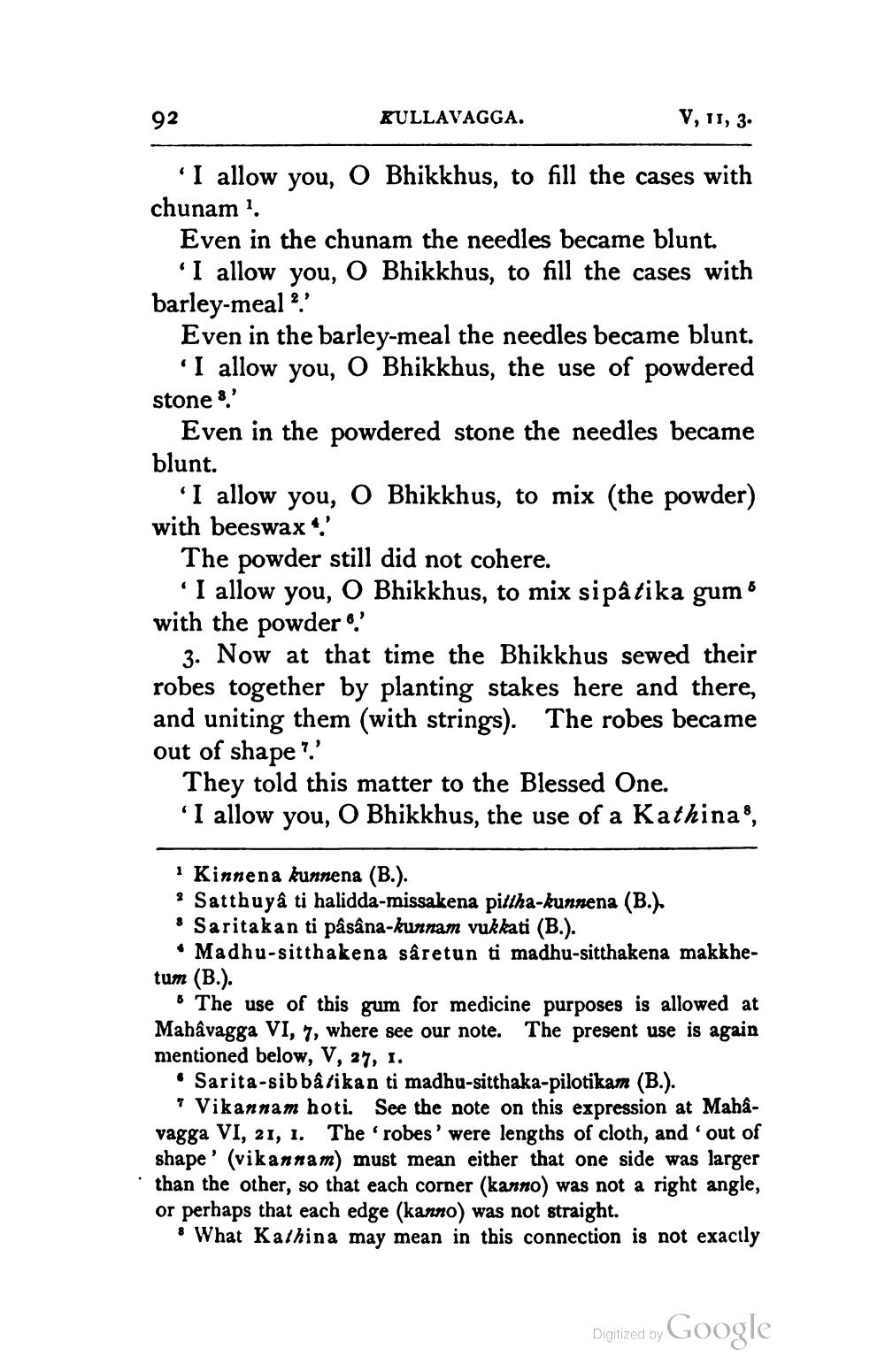________________
92
KULLAVAGGA.
V, II, 3.
'I allow you, O Bhikkhus, to fill the cases with chunam 1.
Even in the chunam the needles became blunt. 'I allow you, O Bhikkhus, to fill the cases with barley-meal 2.'
Even in the barley-meal the needles became blunt. 'I allow you, O Bhikkhus, the use of powdered stone .'
Even in the powdered stone the needles became blunt.
'I allow you, O Bhikkhus, to mix (the powder) with beeswax '.'
The powder still did not cohere.
'I allow O Bhikkhus, to mix sipâtika gum you, with the powder ".'
3. Now at that time the Bhikkhus sewed their robes together by planting stakes here and there, and uniting them (with strings). The robes became out of shape ".'
They told this matter to the Blessed One.
'I allow you, O Bhikkhus, the use of a Kathina3,
8
1 Kinnena kunnena (B.).
2 Satthuyâ ti halidda-missakena pittha-kunnena (B.). Saritakan ti pâsâna-kunnam vukkati (B.).
Madhu-sitthakena sâretun ti madhu-sitthakena makkhe
tum (B.).
The use of this gum for medicine purposes is allowed at Mahâvagga VI, 7, where see our note. The present use is again mentioned below, V, 27, 1.
• Sarita-sib bâtikan ti madhu-sitthaka-pilotikam (B.).
Vikannam hoti. See the note on this expression at Mahâvagga VI, 21, 1. The 'robes' were lengths of cloth, and 'out of shape' (vikannam) must mean either that one side was larger than the other, so that each corner (kanno) was not a right angle, or perhaps that each edge (kanno) was not straight.
* What Kathina may mean in this connection is not exactly
Digitized by Google




